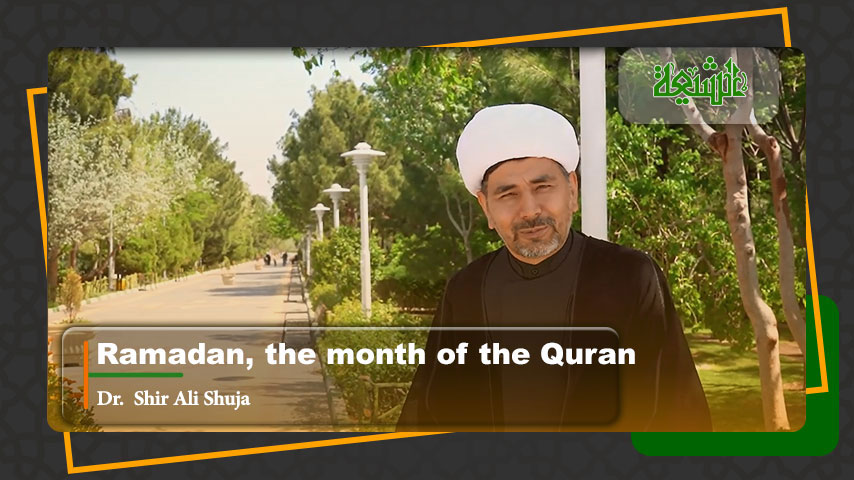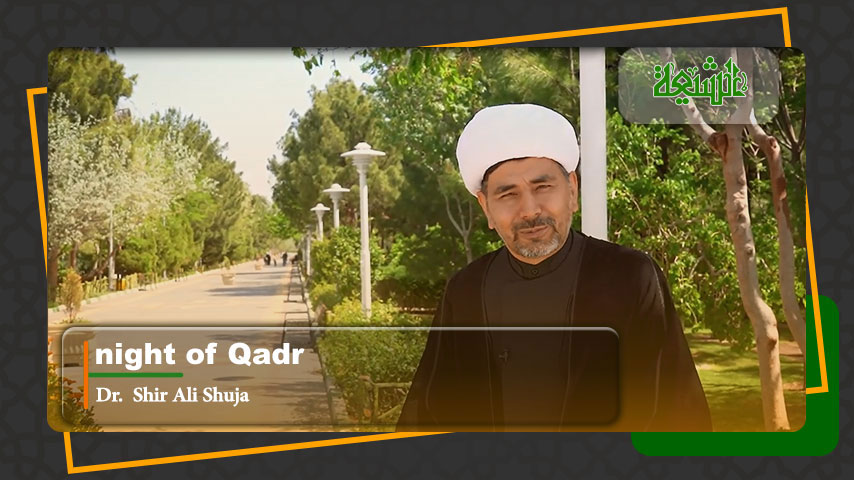In this part of the article titled “Existence of Imam Mahdi in Hadith “My caliphs are twelve persons””, we shall focus on Shia’s interpretations of the hadith.
B: Shias’ point of view
In Shias’ opinion, the only instance of these narratives is imams of “Ahl al-Bayt” [a.s] not others and there is authentic narrative in this regard in which numbers, names and parentage of imams of “Ahl al-Bayt” [a.s] were introduced.
The best and the most comprehensive narrative is this regard is the tablet of “Jabir ibn Abdullah Ansari” that was given to messenger of Allah by god on which the names of all “Ahl al-Bayt” [a.s] are written and skillful hadith narrator “Kulayni” has quoted this narrative with authentic document. In our opinion, caliphs of the Messenger of Allah [PBUH] are from “Bani Hashim” and his dynasty, not that they’re just from “Quraysh” tribe and this issue is written in their valid resources.
According to the affirmation of some of Sunni scholars and researchers, last part of this narrative has been distorted and this fact has been said by two Sunni scholars.
1: Allameh Seyed “Ali Hamadani”
According to the report of “Yanabi’ al-Mawadda” by Seyed “Ali Hamadani” has quoted this narrative with the same document and text written in “Sahih Bukhari” and other resources but instead of quoting this sentence “All of them are from “Quraysh”, he quotes “All of them are from “Bani Hashim”, but it’s written in “Sahih Bukhari” differently:
… عن جابر بن سمرة قال: كنت مع أبي عند النبي صلي الله عليه وآله فسمعته يقول: بعدي إثنا عشر خليفة، ثم أخفي صوته، فقلت لأبي: ما الذي أخفي صوته؟ قال: قال: كلهم من بني هاشم. وعن سماك بن حرب مثل ذلك
“Jabir ibn Samurah” said: my father and I were with messenger of Allah [PBUH] and heard that he said: “They’ll be twelve caliphs after me” then he said a sentence that I didn’t hear: I said to my father: what did he say: he said: messenger of Allah said: all of them are from “Bani Hashim”. {Author says:} such narrative has been quoted via “Sammak ibn Harb”.(1)
2: Allameh “Qunduzi”
Sheik “Sulayman ibn Ibrahim Qunduzi Hanafi” has quoted this narrative from “Abd al-Malik ibn Umayr” with the same document and text containing this sentence “All caliphs are from “Bani Hashim”:
… جابر بن سمرة رضي الله عنه قال: كنت مع أبي عند رسول الله صلي الله عليه وآله وسلم فسمعته يقول: بعدي إثنا عشر خليفة ثم أخفي صوته فقلت لأبي: ما الذي [قال في] أخفي صوته؟ قال: قال: كلهم من بني هاشم. وعن سماك بن حرب مثله. (2)
Notable point is that “Abd al-Malik ibn Umayr” is amongst narrators of “Sihah Sitta” and “Sammak ibn Harb” – Except for “Sahih Bukhari” and “Sahih Muslim – is the narrator of other “Sihah” books. { Al-Kutub as-Sittah, are six (originally five) books containing collections of hadith (sayings or acts of the Islamic prophet Muhammad) compiled by six Sunni Muslim scholars in the ninth century CE}.
It might that the uproar arose while the Messenger of Allah [PBUH] was talking has been due to determining the instance of these twelve persons so that others can’t hear what Islamic Prophet says. If it’s true, we should search to realize who made the uproar.
Similar to this event occurred when the Messenger of Allah [PBUHH] wanted to write something in the last moments of his life so that nation doesn’t go astray after him, some made uproar in front his presence. Who caused this uproar and why? What did they say?!
Imams of “Ahl al-Bayt” [a.s], instance of “Twelve caliphs”, affirmed by Sunni
“Qunduzi Hanafi” has said the opinion of some of Sunni researchers about the instance of “Twelve caliphs” and he believes that Shia imams [a.s] are the instance of this narrative not anyone else:
إن الأحاديث الدالة علي كون الخلفاء بعده صلي الله عليه وآله إثنا عشر، قد اشتهرت من طرق كثيرة، فبشرح الزمان وتعريف الكون والمكان، علم أن مراد رسول الله صلي الله عليه وآله من حديثه هذا الأئمة الاثنا عشر من أهل بيته وعترته، إذ لا يمكن أن يحمل هذا الحديث علي الخلفاء بعده من أصحابه، لقلتهم عن اثني عشر، ولا يمكن أن يحمله علي الملوك الأموية لزيادتهم علي اثني عشر، ولظلمهم الفاحش إلا عمر بن عبد العزيز، ولكونهم غير بني هاشم، لان النبي صلي الله عليه وآله قال: «كلهم من بني هاشم» في رواية عبد الملك عن جابر، وإخفاء صوته صلي الله عليه وآله في هذا القول يرجح هذه الرواية، لأنهم لا يحسنون خلافة بني هاشم و لا يمكن أن يحمله علي الملوك العباسية لزيادتهم علي العدد المذكور ولقلة رعايتهم الآية «قل لا أسألكم عليه أجرأ إلا المودة في القربي» وحديث الكساء فلا بد من أن يحمل هذا الحديث علي الأئمة الاثني عشر من أهل بيته وعترته صلي الله عليه وآله لأنهم كانوا أعلم أهل زمانهم وأجلهم وأورعهم وأتقاهم، وأعلاهم نسبا، وأفضلهم حسبا، وأكرمهم عند الله، وكان علومهم عن آبائهم متصلا بجدهم صلي الله عليه وآله وبالوراثة واللدنية، كذا عرفهم أهل العلم والتحقيق وأهل الكشف والتوفيق
Some of researchers have said: narratives that say successors of messenger of Allah [PBUH] are twelve persons were quoted by many people. And it’s clear that the intention of messenger of Allah [PBUH] from “Twelve imams” is his “Ahl al-Bayt”; because it’s impossible to say that this narrative is about caliphs whose number is less than twelve and we can’t say it means “Bani Umayya” caliphs; because they’re more than twelve and they’d oppress a lot; except for “Umar ibn Abd al-Aziz”, on the other hand, they’re not from “Bani Hashim” while messenger of Allah [PBUH] said in narrative that “Abd al-Malik” quoted from “Jabir”: “Those twelve imams are from “Bani Hashim” and hiding prophet Muhammad’s [PBUH] voice by Sahaba’s uproar {when messenger of Allah wanted to say the parentage of imams} causes the preference of this narrative because they didn’t like “Bani Hashim” to be caliph.
And it’s also impossible to say it means “Banu Abbasid” caliphs; because their number was more than twelve and they would ignore hadith “Kasa” and verse of “Mawaddat” in which almighty god says to messenger of Allah [PBUH]:” This is the glad tidings that Allah gives to His worshipers, who believe and do good works. Say: ‘For this I ask of you no wage except the love of the (Prophet ‘s) relatives. We will add good to whosoever gains a good deed. Allah is the Forgiving and the Thanker”.(3)
So, this sentence “My caliphs are twelve persons” in this narrative means twelve imams who are from the descendent of the Messenger of Allah [PBUHH]; because they were the most knowledgeable and the best and the most pious people and perfect in terms parentage and the most respectable people with almighty god and they got their knowledge from their father connected to their grandfather Messenger of Allah [PBUHH] and it’s been divine. And what confirms this meaning is hadith “al-Thaqalayn” {in which the Messenger of Allah [PBUHH] says: I leave two valuable things amongst you; my “Ahl al-Bayt” and Quran} and numerous narratives written in this and other books. (4)
Sunni scholars confession on that Hadrat “Mahdi”
Some Sunni scholars confessed that Imam Mahdi [a.s] is amongst the twelve caliphs and is from the descendants of the Messenger of Allah [PBUH]
While Sunni scholars are trying to say that instance of “Twelve caliphs” is “Bani Umayya”, they’ve confessed that hadrat “Mahdi” [a.s] is one of these caliphs.
1: “Ibn Kathir Damascene”
He’s admitted in his “Tafsir” book this narrative imply the existence of twelve righteous caliphs who set up right including “Mahdi” whose appearance has been mentioned in narratives:
ومعني هذا الحديث (البشارة) بوجود اثني عشر خليفة صالحا يقيم الحق ويعدل فيهم… والظاهر أن منهم المهدي المبشر به في الأحاديث الواردة بذكره أنه يواطئ إسمه إسم النبي صلي الله عليه وسلم وإسم أبيه إسم أبيه فيملأ الأرض عدلا وقسطا كما ملئت جورا وظلما.
This narrative gives glad tiding to the existence of twelve righteous caliphs who set up right and behave amongst people with justice.
And apparently hadrat “Mahdi” [a.s] is one of those twelve successors, the same “Mahdi” whose name is the same as messenger of Allah [PBUH] and his father’s name is the name of Prophet Muhammad’s [PBUH] name, he’ll fill the earth with justice as it’s filled with oppression.(5)
2: “Jalal al-Din Suyuti”
He’s amongst Sunni well-known Quran interpreters and says: “Abi Dawud” has opened a chapter in his book about hadrat “Mahdi” [a.s] and the first narrative that he’s quoted is the narrative of “Jabir ibn Samurah” and has said: “Mahdi” is one of twelve imams:
أن المهدي أحد الاثني عشر(6)
“Suyuti” says in another narrative:
وعلي هذا فقد وجد من الاثني عشر خليفة: الخلفاء الأربعة، والحسن ومعاوية وابن الزبير وعمر بن عبد العزيز، ويحتمل أن يضم إليهم المهتدي من العباسيين، لأنه فيهم كعمر بن عبد العزيز، وكذلك الطاهر لما أوتيه من العدل، وبقي الاثنان المنتظران، أحدهما المهدي، لأنه من أهل بيت محمد صلي اللّه عليه وآله وسلم.
So, twelve caliphs are as follow:
Four caliphs: imam “Hassan” [a.s], “Muawiya”, “Ibn Zubayr”, “Umar ibn Abd al-Aziz”, and it might that “Mahandi Abbasid” is amongst them; because amongst “Abbasid”, he was like “Umar ibn abd al-Aziz” and also “Tahir” who would behave with justice. And two of these twelve caliphs: one of them is “Mahdi” from the descendant of Messenger of Allah [PBUHH]. (7)
To be Continued
NOTES:
_______________________________________
1. “Al-Qunduzi al-Hanafi”, Yanabi’ al-Mawadda, vol. 3, p 290.
2. “Al-Qundizi Hanafi”, Yanabi’ al-Mawadda, vol. 2, p 315.
3. The Quran: Surah Al-Shura verse 23.
4. “Al-Qunduzi Hanafi”, Yanabi’ al-Mawadda, vol. 3, p 291.
5. “Ibn Kathir Damascene”, Tafsir al-Quran al- Azim, vol. 2, p 33.
6. “Al-Suyuti”, al-Havi li al-Fatawa fi al-Fiqh, vol. 2, p 80.
7. “Al-Suyuti”, The history caliphs, vol. 1, p 12.
















